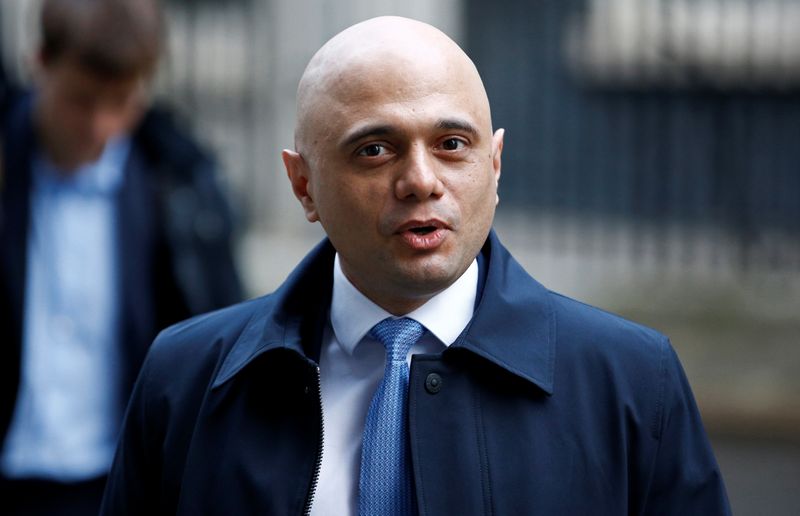LONDON (Reuters) - Britain's government will delay until after March's budget a consultation to decide when it should fix a flawed measure of inflation, the retail price index, finance minister Sajid Javid said.
More than a quarter of British government bonds, worth around 450 billion pounds ($584 billion), are linked to the Retail Prices Index (RPI) which runs higher than other measures of inflation, meaning investors receive an estimated windfall of 1 billion pounds a year.
In a letter to the economic affairs committee of Britain's upper house of parliament, Javid said the consultation would last for six weeks from the budget on March 11 until April 22, rather than starting this month as previously planned.
"The government and (UK Statistics Authority) will respond to the consultation before the parliamentary summer recess," Javid said in the letter dated Monday.
Britain's statistics regulator has said the RPI should be aligned with another measure of inflation, CPIH, after 2025.
This year's consultation will ask if the corrections to RPI should be made at a date other than 2030, and if so, when between 2025 and 2030.
Insurance firms are big buyers of index-linked bonds to help them pay private pensions that are linked to RPI, and they would be losers from any immediate change.
But RPI is also widely used for setting annual increases in rail fares and student loan repayments, meaning commuters and students face higher increases than they would if the fares and loans were based on CPIH.
Mark Capleton, a fixed income strategist at Bank of America (NYSE:BAC) Merrill Lynch, said the consultation was likely to put downward pressure on the price of index-linked gilts maturing after 2030, which face being indexed to a lower measure of inflation.
"Some may see this delay as a glimmer of hope either for a reversal of the decision to turn RPI into CPIH or for some form of compensation. More than countering such hope, we would say, is the fact that the Chancellor reiterated that this would be a consultation about when, not if," he wrote in a note to clients.
Thirty-year index-linked gilt prices <0#GBTSYIL=> did not yet fully factor in the likelihood of lower returns than their 10-year equivalent, he added.
